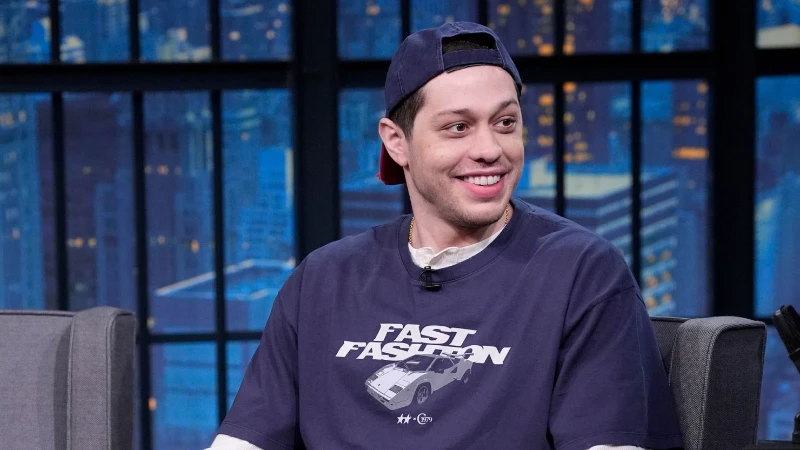Zelenskyy Warns: U.S. Support Crucial for Ukraine's Survival
As tensions rise, Ukrainian President emphasizes that security guarantees without American backing are hollow; skepticism grows over Trump's intentions and the implications for European stability.
The geopolitical climate surrounding Ukraine has become increasingly tense, with President Volodymyr Zelenskyy expressing deep concerns about the future of U.S. support under former President Donald Trump. As Ukraine faces ongoing aggression from Russia, Zelenskyy has emphasized that European security guarantees are insufficient without American involvement. "Security guarantees without America are not real security guarantees," he stated in a recent interview with The Guardian.
Zelenskyy's assertion comes amidst Trump's previous statements regarding his intentions to end the war in Ukraine. However, experts remain skeptical about whether such a resolution would involve forcing Ukraine to capitulate to Russian demands. "We cannot accept it, as an independent country," Zelensky said, rejecting any peace deal proposed by the U.S. and Russia without Ukrainian involvement
"We cannot accept it, as an independent country," Zelensky said.
In an effort to secure continued support from the U.S., Zelenskyy has devised a strategy to engage American firms for lucrative reconstruction contracts in postwar Ukraine. This move is seen as an attempt to gain favor with Trump and ensure sustained backing for Kyiv's defense efforts against Russian aggression.
Zelenskyy's diplomatic efforts will soon take him to the Munich Security Conference, where he plans to meet key figures within Trump's circle, including Vice-President JD Vance - known for his hostile stance towards Ukraine - and other influential senators. Despite these challenges, Zelenskyy remains hopeful that discussions will lead to positive outcomes for his nation.
The Ukrainian president's communication skills have previously played a crucial role in garnering Western leaders' support during the early stages of Russia's invasion. His ability to articulate Ukraine's plight and rally international assistance was instrumental in securing weapons and financial aid from reluctant allies.
“They may make a deal... but we’re gonna have all this money in there and I said I want it back,” said Trump
However, Trump's recent comments on U.S. spending in Ukraine have raised concerns about financial accountability regarding aid provided thus far. This sentiment underscores fears that future support might be contingent upon economic interests rather than humanitarian or strategic considerations.
To address these apprehensions, Zelenskyy has proposed granting access to Ukraine's rare earth minerals as an incentive for continued U.S. support - a prospect that has piqued Trump's interest due to its potential economic benefits. With significant reserves of uranium and titanium at stake, this proposal could play a pivotal role in negotiations between Kyiv and Washington.
Military aid remains another critical aspect of U.S.-Ukraine relations; specifically, the importance of American-made Patriot systems for defending against Russian missile attacks highlights Kyiv's reliance on advanced technology from its transatlantic ally
“Only Patriot can defend us against all kinds of missiles,” he said. Without such support from America - or assurances thereof - Ukraine’s security guarantees appear incomplete.
The potential for peace talks between Russia and Ukraine, facilitated by Trump, has stirred significant unease among European allies. Many fear that any agreement reached without direct Ukrainian participation could undermine Kyiv's autonomy and sovereignty. "We cannot accept it, as an independent country," Zelenskyy asserted firmly.
"Ukraine will not agree to any peace deal proposed by the US and Russia without its involvement," President Volodymyr Zelensky
European leaders have expressed their commitment to supporting Ukraine's independence in these negotiations. The French president, Emmanuel Macron, emphasized that Europe must be involved in any discussions regarding Ukraine's future. However, there is skepticism about whether a European peacekeeping force could effectively maintain stability post-ceasefire without American backing.
Analysts have voiced alarm over the possible outcomes if negotiations proceed without adequate safeguards for Ukraine’s territorial integrity. Concerns are mounting that Trump's approach might prioritize a quick resolution over long-term security for Eastern Europe. "I told Trump that Putin [is] afraid of him," said Zelenskyy during a press conference, highlighting the delicate balance of power at play.
Critics argue that Trump's actions may be driven more by self-interest than genuine concern for regional stability. His emphasis on financial accountability and prioritizing American business interests in reconstruction efforts has raised questions about his motivations.
"Trump said he wants to end the war in Ukraine but skeptics fear a US-brokered deal could involve forcing Ukraine to capitulate," The Guardian
In response to these criticisms, those involved in decision-making processes justify their actions as necessary steps towards achieving peace and stability in Eastern Europe. They argue that engaging with both Russian and Ukrainian leaders is crucial for finding a viable solution.
The broader implications of this situation are profound; public trust towards international alliances may be affected moving forward if perceived self-serving agendas overshadow genuine diplomatic efforts."Zelensky continues to show the kind of courage most leaders only pretend to have," one tweet read, underscoring the high stakes involved.
As global attention remains fixed on this geopolitical chess game, lessons learned from past experiences should inform future diplomatic strategies - ensuring that power dynamics do not compromise essential values or lead to unintended consequences."A peace deal cannot be signed in Munich because it's Munich," quipped Zelenskyy humorously yet pointedly during recent discussions.
